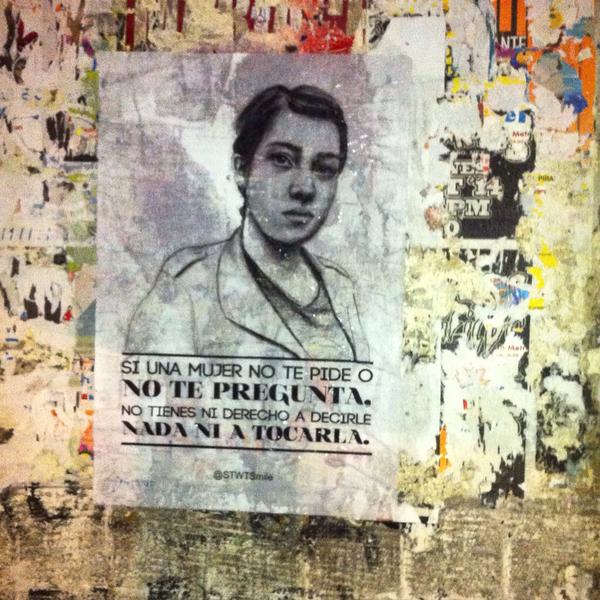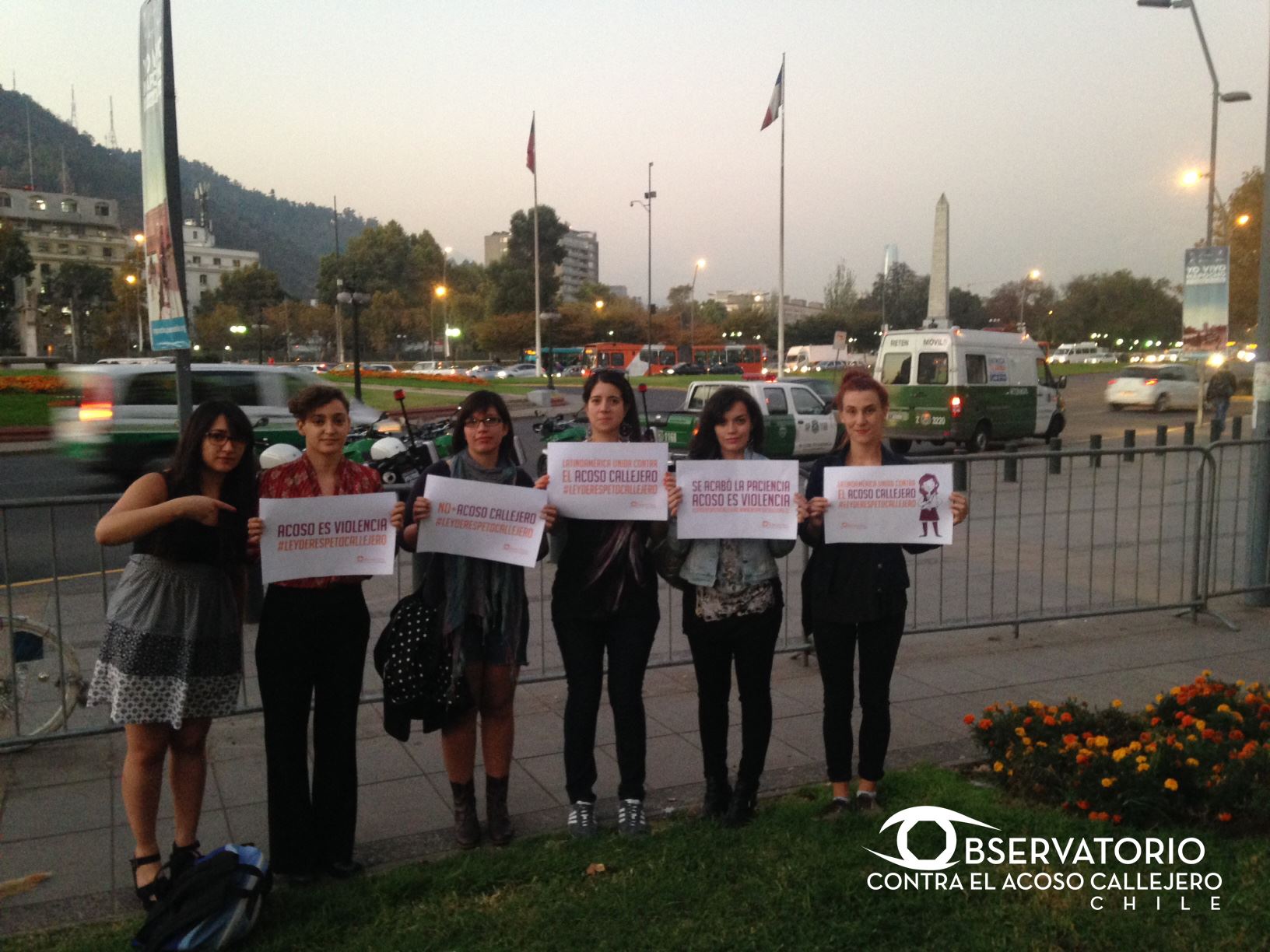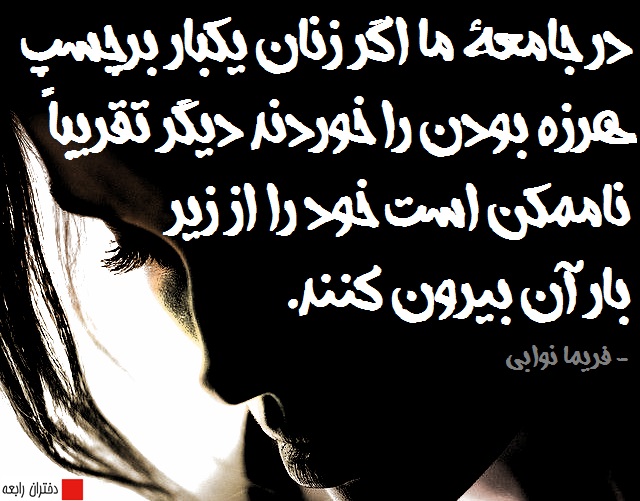
Special Global Action!
Making Public Spaces Safe and Welcoming
By BPurdy

Special Global Action!
By HKearl
 So many events today! Read about four examples of actions in the past 24 hours. See the updated photo album. Here is our media coverage (more than 50 media hits) so far.
So many events today! Read about four examples of actions in the past 24 hours. See the updated photo album. Here is our media coverage (more than 50 media hits) so far.
Studies and Campaign:
* A study released today in France found that 100% of more than 600 women surveyed across the country had faced sexual harassment on the transit system. I spoke with staff at the deputy minister for women’s rights, Pascale Boistard, today by phone and they plan to roll out a comprehensive anti-harassment campaign on transit systems across France in about a month. This would include trains, buses and subways in every city. To my knowledge, this will be the first country-wide campaign!
* The Los Angeles transit authority launched an “It’s Off Limits” anti-harassment campaign on their system!
* Cornell University and Hollaback! released findings from an opt-in survey conducted through their localized sites at the end of 2014. More than 4,000 women under 40 years old took it. While it is not nationally representative nor does it look at men’s experiences or factors like race or sexual orientation (as our 2014 GfK study does), it does provide more insight into the impact street harassment has on harassed persons, which is valuable information.
Virtual Efforts:
* @INBreakthrough, @FemIndProject and @PixelProject co-hosted a Tweet chat about cultural differences in harassment and reactions, #EndSH2015
* Latin American countries are super active this year. Today alone, NGOs in Chile, Argentina, Brasil, Colombia, El Salvador, Nicaragua, Peru, Ecuador and Uruguay took photos with anti-harassment, pro-respect messages and posted them on social media. Gracias!
* In France, after a business woman tweeted that getting whistled at is nice, thousands of people shared their street harassment stories using the hashtag #plutotsympa. The hashtag trended for part of the day.
* Today was the 3rd anniversary of the UK-based international group Everyday Sexism. Founder Laura Bates said that today alone, 45,000 people tweeted about sexism, including street harassment, using the hashtag #everydaysexism.
Articles:
* Iranian women’s street harassment stories.
* Kenya: Because I Speak Out I Feel Safer
* An Afghan woman writes about how words matter
* Activists Put Up “No Catcall Zone” Street Signs in NYC and Philly (my article for Feministing). More than one dozen outlets covered the catcall signs too, and cited Anti-Street Harassment Week
Video:
* Our board member Maliyka Muhammad spoke on Fox news in NYC!
By HKearl
There are so many amazing efforts and campaigns happening for International Anti-Street Harassment Week! Here are four examples….
Activista Nepal held a street demonstration demanding safe public toilets at Sundhara, Kathmandu. Yesterday they held a youth workshop on street harassment.
The Netherlands, via Den Haag FM:
“Dozens of men were this afternoon on the square shouted at by a group of women. These women are part of the action group Citizens Street Harassment wants to bring this behavior to the attention and wants to fining.
Anti street “What we do can not make it, but the men who do that to us can not make it. I am a random person who never asks, just as they are. How strange is it that someone in an unpleasant way interfere with you? “Said Jessica van der Pluijm, one of the protesters.
The ladies have collected signatures to eventually submit a citizens’ initiative to criminalize street harassment. MP Ahmed Marcouch (PvdA) has pledged to get started with the criminalization of street harassment.”
NO Molestie Di Strada is posting stickers against harassment across Italy!
India, via I am in DNA of India:
“I am in dna of India, iamin.in, a hyperlocal news platform and Safe City, an NGO that provides a platform for people to share their personal stories of sexual harassment and abuse in public spaces have teamed up to bring you local and concerned voices pained by everyday street harassment.
In our research to find most unsafe zones for women in Delhi, South Delhi’s Lal Kuan area topped the list. It was not just street harassment that we found rampant there, it was a whole lot of issues surrounding it that prompted us to amplify the voices of victimized locals and bring to you their concerns through a dedicated page.“
By Contributor

Guest Blog Post for International Anti-Street Harassment Week 2015
When I speak about street harassment, I notice the ears of men go red. I wish it was out of shame or fear of it. Women face many different kinds of harassment and abuse in our society: physical, sexual and or mental.
I have often thought about how mental abuse and harassment can be one of the worse methods of marginalizing women. This kind of harassment cannot be seen and pointed to, but it can leave a lasting impact on people’s emotional and mental health. Unfortunately, I have also noticed that most women tolerate this kind of abuse in silence for many difference reasons. One of the reasons may be that they feel standing up to defend themselves is not effective. Especially in Afghanistan where religion and traditions have been mixed and hard to distinguish from one another, it is hard to prove to men that their behavior and the harassment they perpetuate is unjustified. In addition, these men have access to many different weapons to justify their behavior and silence anyone who objects. When it comes to shutting women up, the most efficient weapon has been character assassination.
Opinionated and educated women are more likely to be hunted down by this weapon because they are viewed as a threat to patriarchy. The men who attack these women know very well that if a woman is known as being promiscuously or immoral, it is nearly impossible for her to free herself of that label. Therefore, it is not a coincidence that usually women are attacked when they disobey the laws of our patriarchal society and stop bowing their head to misogynistic systems and structures. When women don’t submit to men’s power and desires, take ownership of their own bodies, view themselves as more than commodities and things or speak up using logic, their character is immediately assassinated.
The literature of this form of terror is simple, but specific. It is enough to call a woman certain things over and over at different settings and venues in order for her to be delegitimized. These words include but are not limited to promiscuous, immoral, prostitute, whore, infidel, man-hatter, angry, bitch…. Isn’t it fascinating that there are no male equivalents for the words bitch, whore, slut…?
If one tries to fight harassment by talking to misogynists as two fully developed human beings who are deserving of equal rights, if one decides to respect oneself and not give into this myth of female inferiority, one is immediately labeled shameless. If one uses logic, she is called infidel. If one points out to inappropriate behavior by men, she is called a man-hater.
Standing strong despite the devastating effects of these words is not easy, especially if a woman wants to have some public approval and impact. These words cause long term emotional and mental issues. They destroy women’s confidence and exhaust them. They break women’s spirits and tear them to pieces. Perhaps that is why one should learn how to gather one’s pieces and stand against the angry wave of misogyny.
By Farima Nawabi, cross-posted from the Dukhtarane Rabia (Daughters of Rabia): A blog on social justice in Afghanistan
Poster text: In our society, if a woman is known as being promiscuously or immoral, it is nearly impossible for her to free herself of that label.
By Contributor
Guest Blog Post for International Anti-Street Harassment Week 2015
Setting up Hollaback! Nairobi dates back to late 2013. I was harassed by two drunk men on my way home. I was actually on my street surrounded by people that had known me since I was a child and it hurt that none of them did anything to help me. The two men were walking behind me and saying a lot of nasty things because I had a long slit in the back of my dress that showed my thighs. I tried to ignore them and kept walking. I don’t really remember the details of the altercation now but what I will never forget is that one after the other they put their hands up my dress and though I did manage to hit one of them before they ran off I was violated. I have never been able to forget what that few seconds felt like and I have never been able to wear that dress again. I told many of my friends about it and it was one of them told me about Hollaback and the work they do. It was very easy to make the decision to sign up and setup a site for Nairobi.
A lot of things happened in my life that made it difficult to setup immediately but every new experience I had or heard about from a friend strengthened my resolve to make sure it was actually set up. Hollaback! Nairobi’s official launch was in January 2015.
Three months later I am still a one woman team and it’s a little daunting since I also have a full time job. I am often second guessing myself about whether to speak out about an issue or stay quiet and there is also some procrastinating on whether to advertise, print out stickers and flyers but I believe in time it will all get easier and I will find a couple of team members willing to join the movement for all the right reasons. So far in the recruitment process, I have encountered two types of people. Type 1 wants to take over and turn the movement into something it’s not; a full time job with massive donors and trips abroad. Type 2 are interested in taking part but don’t really want to put in the time.
Unfortunately, getting people to speak out and share their stories has been very slow despite the growing number of rape cases, and other forms of gender based violence. In fact two of my school mates, one from primary school and another from law school were killed by their boyfriends in 2014. Additionally, in November and December 2014 videos were shared all over social media of men publicly stripping women on the streets for what they call dressing indecently that went viral and had many Kenyans take to the streets to protest against these actions. In 2015 public a member of parliament has been accused of raping a journalist in his publicly funded office.
The need for activism on any form of gender based violence in this country grows every single day and it will only be a matter of time before people are able to speak out more on the issue, before people are able to share their stories and maybe even put their names and faces on their experience.
Before that day comes, Hollaback! Nairobi’s main focus is education. People have yet to accept that street harassment is a violation, that it causes harm to the victims, eating into their self-confidence little by little. It certainly isn’t rape but that doesn’t make it any less important. Besides, if we were to teach people to respect us on the streets in broad daylight they will certainly respect us even in the dead of night.
Getting victims to speak out in a society where people say they have larger problems to deal with like terrorism and starvation will be an uphill task but I think it can be done. Building a society where people feel safe and respected is an all rounded affair. We cannot focus on one and ignore the other.
What I have loved most since joining Hollaback! is the support this community provides. It’s like having a personal team of cheerleaders every step of the way. As a person, I feel more confident about myself because I can speak out. And because I can speak out I feel safer. I had completely stopped taking any public means of transport but it’s now the exact opposite. I rarely drive myself anywhere on weekends. Life is so much better when you can walk and enjoy the sunshine.
My community hasn’t yet accepted our existence here but if it has had this effect on me, I am sure it will spread.
Wacu Mureithi Directs Hollaback! Nairobi